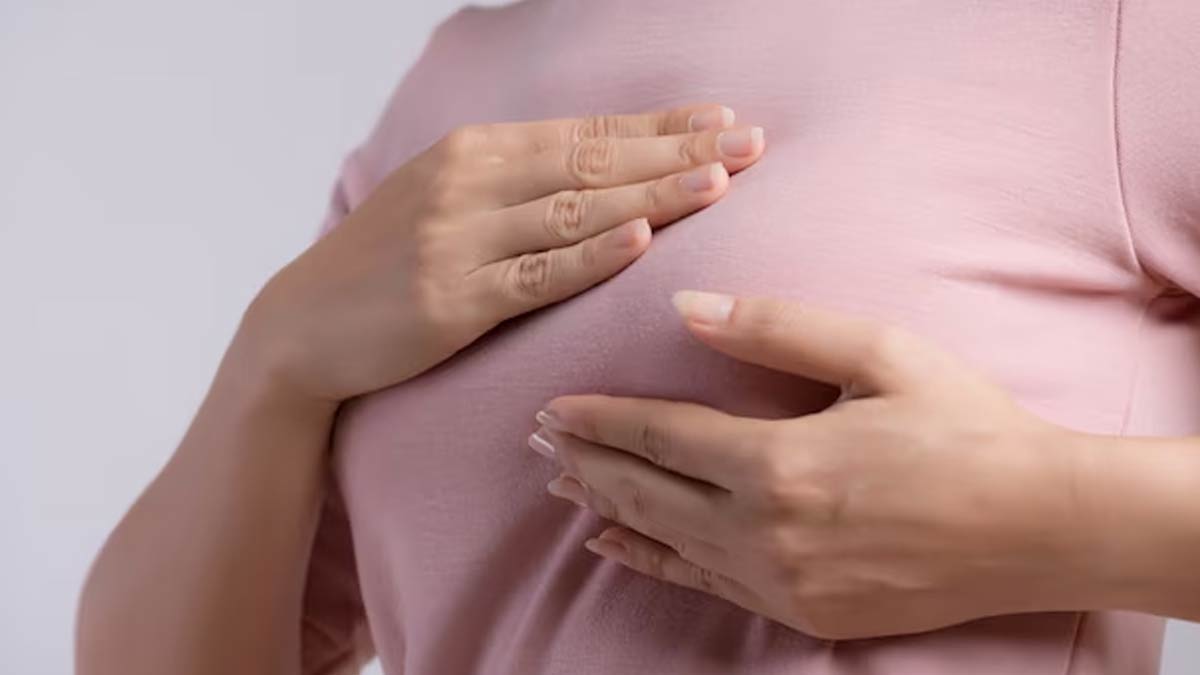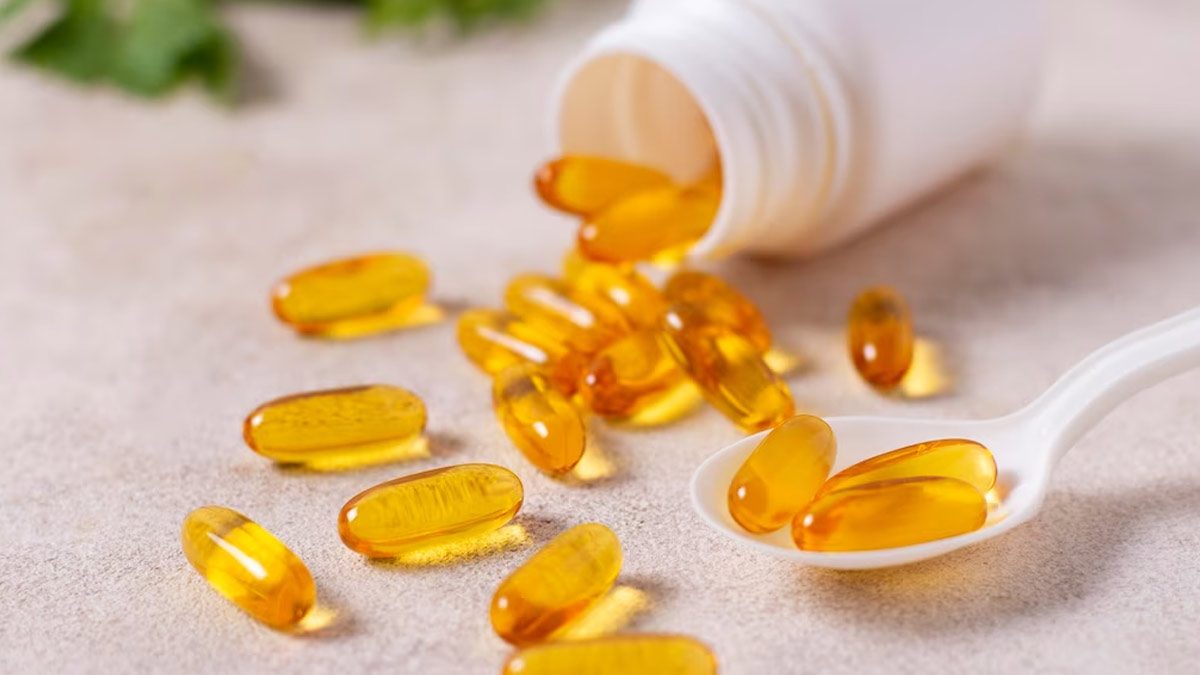
Vitamins and minerals play an important role in keeping health problems at bay. A deficiency in any of the nutrients can lead to symptoms, such as fatigue, dizziness, headache, and more, not to mention it can give rise to more severe diseases, including certain types of cancers. In fact, a particular vitamin deficiency is said to be linked to breast cancer risk. Speaking with the OnlyMyHealth team, Dr Sajjan Rajpurohit, Senior Director-Medical Oncology, Max Super Speciality Hospital, Shalimar Bagh, sheds light on the association and discusses the major risk factors of breast cancer.
Table of Content:-
Understanding Breast Cancer And Its Symptoms

Breast cancer is one of the leading cancers in women, accounting for more than 20 lakh diagnosis and six lakh deaths in 2020, worldwide, as per the World Health Organization (WHO).
"Breast cancer originates when normal cells in the breast undergo genetic mutations that cause them to grow and divide uncontrollably," says Dr Rajourohit, adding, "These abnormal cells form a tumour, which can invade nearby tissues and potentially spread to other parts of the body, a process known as metastasis."
Also Read: THIS Cholesterol Symptom Could Strike At Night: Other Warning Signs To Note
According to him, while the majority of breast cancer cases occur in women, men can also be diagnosed with this condition, albeit at a much lower rate. The WHO suggests approximately 0.5–1% of breast cancers occur in men.
Common symptoms of breast cancer include a breast lump, change in breast size, shape or appearance, changes to the skin over the breast, a newly inverted nipple, and redness of the skin over your breast, like the skin of an orange.
Can Vitamin D Deficiency Be A Risk Factor For Breast Cancer?

Vitamin D, also known as the "sunshine vitamin," is a fat-soluble nutrient that our bodies produce in response to sunlight exposure. Beyond its role in promoting healthy bones, it has a broader impact on various bodily functions, including its potential influence on cancer prevention, says Dr Rajpurohit.
“While the intricacies of this relationship between vitamin D and elevated risk of breast cancer are still being unravelled, evidence suggests that maintaining adequate levels could play a crucial role in reducing the risk of this prevalent disease,” he adds.
According to Breastcancer.org, vitamin D may help control normal breast cell growth and may be able to stop breast cancer cells from growing. Vitamin D helps the body absorb calcium, which is essential for good bone health.
A study published in the Journal Breast Cancer: Basic and Clinical Research found an inverse association between vitamin D levels and breast cancer risk. The researchers suggested that elevated serum 25(OH)D through sun exposure and dietary intake of more than 400 IU per day vitamin D supplementation decreased breast cancer risk and recurrence.
Research has also shown that individuals with low vitamin D levels may have a higher risk for cancer recurrence and cancer spreading.
How To Know You’re Vitamin D Deficient
Some of the common symptoms of vitamin D deficiency include:
- Persistent fatigue and a general sense of weakness
- Bone pain, muscle aches, and an increased risk of bone fractures
- Mood disorders, such as depression and anxiety
- Higher susceptibility to illnesses
- Hair loss
- Slower healing of wounds and injuries
- Reduced bone health, leading to conditions like osteoporosis or rickets in children
Food Sources Of Vitamin D

Here are some key sources of vitamin D besides sunlight:
- Fatty fish, such as salmon, mackerel, trout, sardines, and herring
- Fortified dairy products (milk, yoghurt, cheese), plant-based milk alternatives (soy milk, almond milk), and fortified cereals
- Egg yolks
- Beef liver
Also Read: The Vitamin That Can Reduce Your Risk Of Prostate Cancer: How To Get Optimum Levels
Note The Other Risk Factors Of Breast Cancer
Dr Rajpurohit says, “Breast cancer, a complex disease with multifaceted origins, is influenced by a range of factors beyond genetics. While some risks are beyond our control, understanding these variables can empower individuals to make informed choices for their health.”
Here are other risk factors associated with breast cancer:
- Family history and genetics
- Hormone Replacement Therapy (HRT)
- Reproductive factors, such as starting menstrual periods before age 12 and starting menopause after age 55; these can expose women to hormones longer, raising their risk of getting breast cancer
- Radiation exposure
- Obesity
Bottomline
Breast cancer is a complex disease and its risk is influenced by several factors. Vitamin D deficiency may be one of them, however, more research is needed. In the meantime, it is extremely important to assess your risk of developing the disease and taking necessary measures.
“The significance of early detection cannot be overstated in the fight against breast cancer. Regular self-examinations, clinical screenings, and mammograms play pivotal roles in identifying potential abnormalities at an early stage. When caught in its infancy, breast cancer is more manageable and the chances of successful treatment are significantly higher,” Dr Rajpurohit concludes.
Also watch this video
How we keep this article up to date:
We work with experts and keep a close eye on the latest in health and wellness. Whenever there is a new research or helpful information, we update our articles with accurate and useful advice.
Current Version